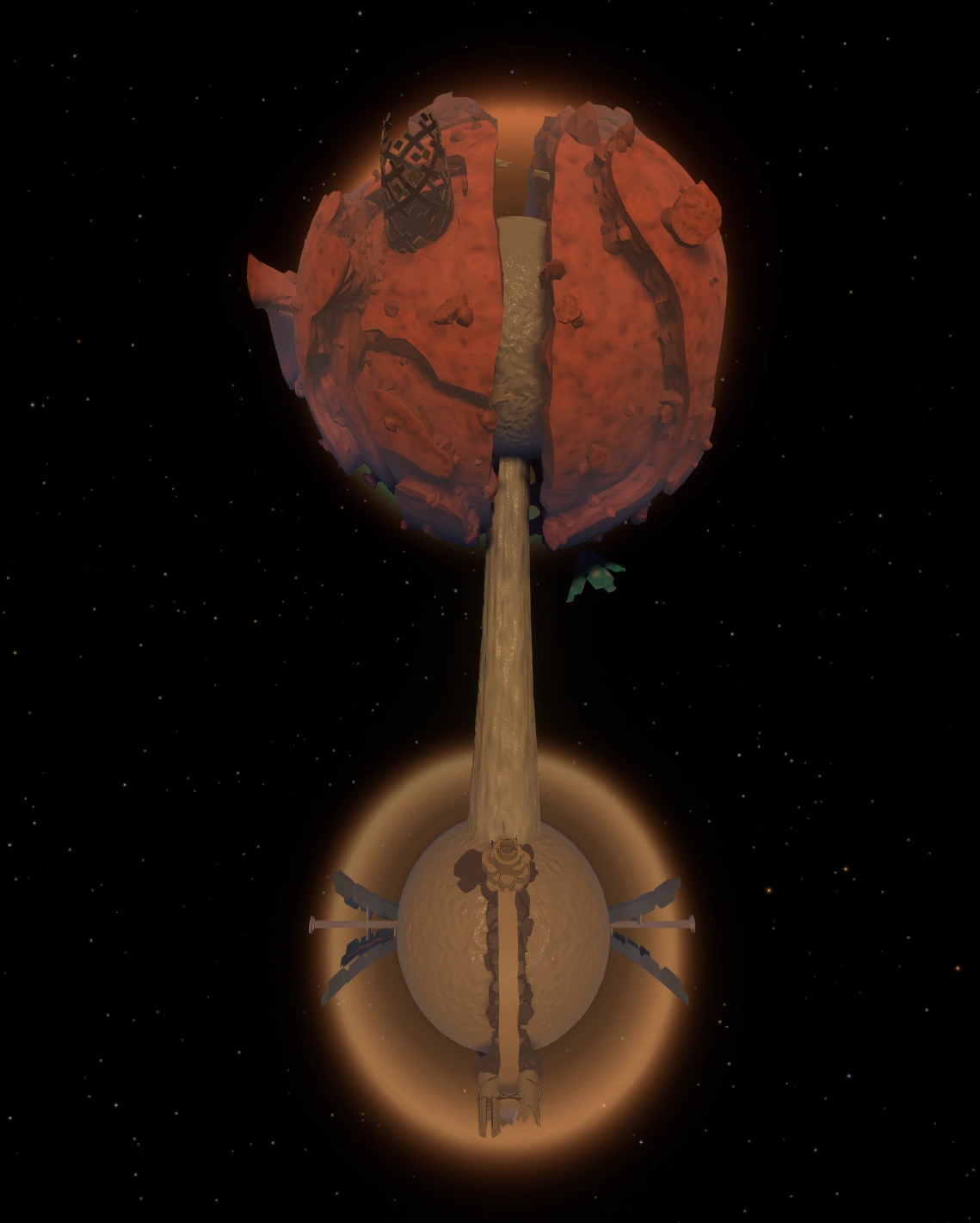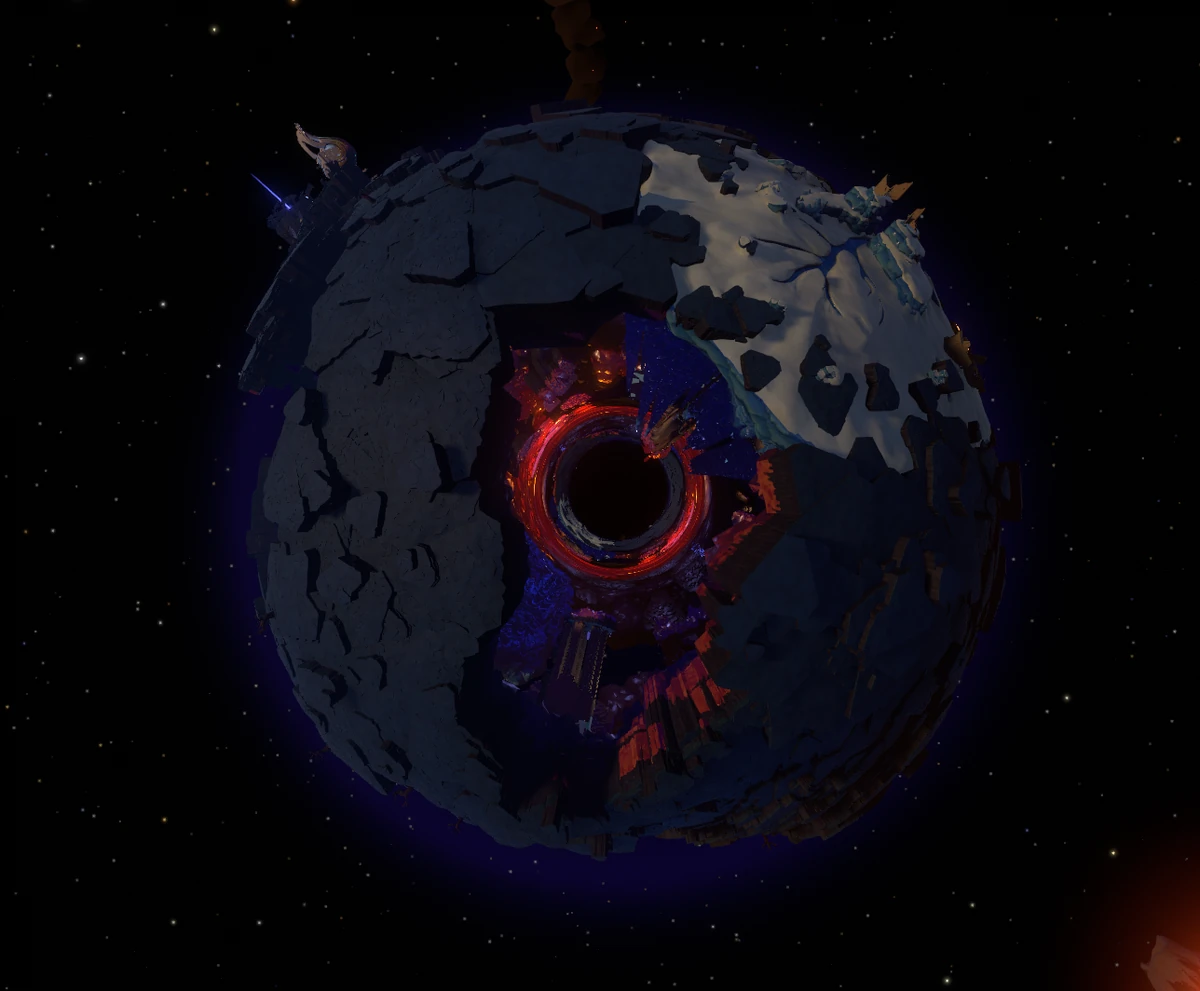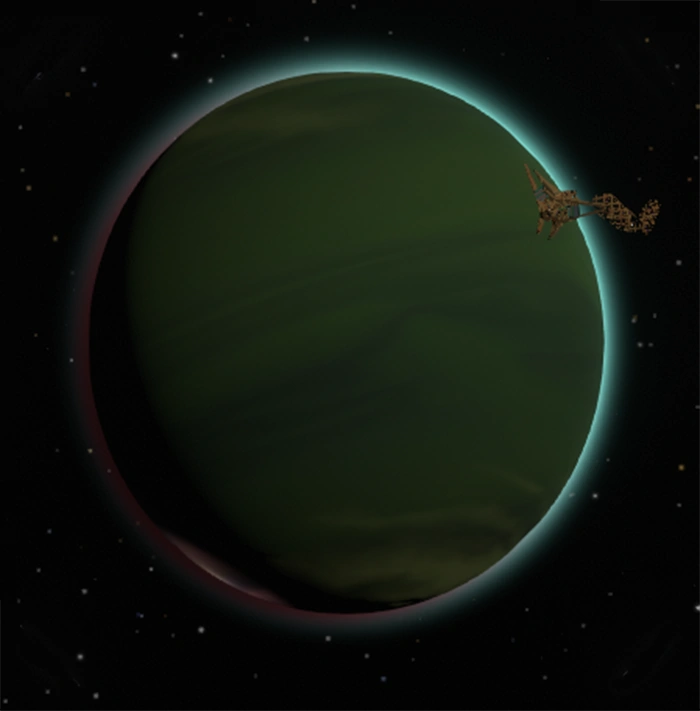Outer Wilds: life, death and selfless Utopias
- Diego Cano Gómez
- Nov 20, 2022
- 5 min read
Outer Wilds is an action-adventure game developed by Mobius Digital and published by Annapurna Interactive in 2019.
The lore of this game is kind of hard to explain through written word, as it involves a set of specific non-verbal narrative mechanics to explain the story to the player.
Another issue when describing the game, apart from its extreme narrative complexity, is the way in which knowing any spoilers about the game can completely ruin the experience, as the structure of the game works as a gigantic puzzle that can basically be solved from minute one to complete the game, so I feel obligated to place a disclaimer for anyone that is planning to play this game to stop reading this article, as this game is a beautiful experience that can only be enjoyed all along once.
The game, in an essentialistic description, consists of exploring a tiny solar system in which, a mystery that was left unsolved by an ancient society from a different species of the main character is presented to us to discover its solution. The interesting part about this exploration is the way in which the main game mechanic is presented, as we are placed in a 22 minute time loop that ends with the sun exploding into a supernova that destroys the whole solar system, including ourselves and the characters we meet. When the time loop restarts, we are basically the only ones that remember the previous loops and the different outcomes presented to the main-character. The explanation for the time loops is quite complex and I won’t be discussing it in this article as it is not relevant for the topic to be studied.

Although what I have had explained until now may sound like a dystopian world, the game achieves to present a world that is extremely beautiful and sublime, and give us the most interesting reflexion about life, death and social advance, that no existentialist philosophy book has been ever able to give me.
In the game you wake up as the main character whose name is not mentioned, but is referred as ‘’the hearthian’’ (agendered and androgynous species) by the fans, as he is an inhabitant of Timber Hearth, a planet inspired by the Earth that is located in this small solar system. In the game, your character is about to take his first astronomical flight, as a pupil of the space program of the Hearthians. The planet is portrayed as a very green place in which all the inhabitants, except for the ones spread through the solar system, live in a very tiny and comforting village in harmony. It’s very interesting to see the way in which even with the ability of cosmic transportation, the Hearthian society shows no signs of industrialization, with spaceships built out of wooden planks and metal scraps.
The main attraction of the game is how aesthetically pleasing it results to the player as, even though the solar system and the planets can be traveled through in a few minutes, it still achieves to give us a sense of universal immensity and sublime voidness.
Every planet is beautiful in its own way as each of them has its own unique ecosystem and history. My favorite of all of them is probably Timber Hearth as it is the most peaceful one, constituted by small conifer forests, water geysers, wooden houses, mountains, remnants of ‘’Nomai’’ civilization (the one previous to the Hearthians), and lots of miniature like pleasuring sceneries.

Image by @NightMargin, on twitter.
In terms of discourse, it is what makes this game so infinitely great, but again, I feel morally obligated to disclaim for the major spoilers in this part, which would destroy the experience to every person that has not played the game yet. Taking the whole discourse of the game and simplifying it to extremes, we have a message about accepting death as a part of life and a pantheistic view of nature and the universe. At the end of the game we, as the player, experience the death of the universe and all the stars in order to get out of the time loop. After solving the mystery left to us by the previous society we discover “the eye of the universe” a blackhole-like phenomena, which has quantum nature and contains all the possibilities of the universe and it’s the key for the rebirth of the new one. Due to its quantum nature, it requires a conscious observer to discern one specific possibility out of the infinite ones that it contains in order to make it possible. We, as players, are the ones that have been called by this force to help it create the new universe for the next generations, and it is going to create it from the memories and friends we have made along the whole journey of the game, an experience that makes me burst into tears every time I re-experience it in my head.
The most interesting constructions of discourse are given to us through the dialogues of these friends we meet along the way. These quotes are the ones that, even containing death at its core, portray one of the purest and most transcendental utopian ideas I have ever seen in any form of media. The first one shows the pantheistic utopia, it is said by Solanum, a member of Nomai society which we meet isolated in a quantum location outside of time, that managed to survive its species abrupt extinction by being at the “quantum moon” during this catastrophic event. The quote goes like this:
“As a child, I considered such unknowns sinister. Now, though, I understand they bear no ill will. The universe is, and we are.”
A quote that really pushes us to embrace all the beautiful aspects of life and places us closer to the universe and nature, making us appreciate them as parts of us , in, as I said before, a pantheistic conception.
Another two more quotes that give us a new beautiful perspective towards death are the ones said by a Hearthian named Chert, and another character, from another society even older than the Nomai, that gives us a portrayal of endings as new beginings. The one by Chert says:
“Come, sit with me, my fellow traveler. let's sit together and watch the stars die”
This is said by him as he realizes that all his research work has been for nothing as he watches the Universe collapse into supernovas. But then, there is this quote by the other character I said before, which comes to rescue this other statement from a pessimistic reflection at the end of the game, with the construction of the new universe out of our memories (as we are the conscious observer):
"Time to send our spark out into the darkness."
A statement that is crucial to show that our work is not for an individual purpose but rather for a communitarian one. Again, this statement is reinforced and closed by another Hearthian, Riebeck, at the end of the game saying this:
“The past is past, now, but that's... you know, that's okay! It's never really gone completely. The future is always built on the past, even if we won't get to see it.”
This quote constitutes the epiphany of the discourse of this game, creating a truly utopian and selfless message that gives an insight pushing towards the creation of a society based on empathy and consciousness for the next generations.
It is this extremely complex discourse and story that constitutes a mesmerizingly beautiful metaphor for us players to apply to our human world.
*The event that killed the Nomai species was a comet that spread a lethal substance all along the solar system, extinguishing the whole Nomai society. Solanum was able to survive due to the Quantum Moon's nature as it exists in different places at the same time. One of those locations was outside of the solar system, allowing her to survive in that location but die in all the others.














Comments